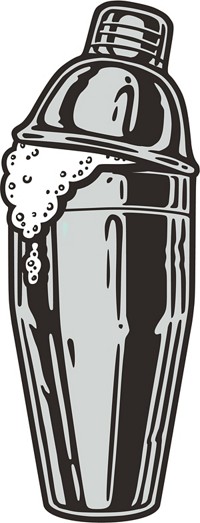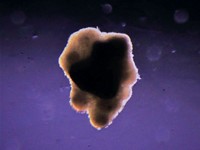Advertisement
Grab your lab coat. Let's get started
Welcome!
Welcome!
Create an account below to get 6 C&EN articles per month, receive newsletters and more - all free.
It seems this is your first time logging in online. Please enter the following information to continue.
As an ACS member you automatically get access to this site. All we need is few more details to create your reading experience.
Not you? Sign in with a different account.
Not you? Sign in with a different account.
ERROR 1
ERROR 1
ERROR 2
ERROR 2
ERROR 2
ERROR 2
ERROR 2
Password and Confirm password must match.
If you have an ACS member number, please enter it here so we can link this account to your membership. (optional)
ERROR 2
ACS values your privacy. By submitting your information, you are gaining access to C&EN and subscribing to our weekly newsletter. We use the information you provide to make your reading experience better, and we will never sell your data to third party members.
Food
Newscripts
Baking, old and new
by Sam Lemonick
August 24, 2019
| A version of this story appeared in
Volume 97, Issue 33
Bake like an Egyptian

Like us, ancient Egyptians used yeast to make bread and beer. Now a self-described amateur gastro-Egyptologist has baked a few sourdough loaves with yeast collected from 4,500-year-old Egyptian pottery.
Seamus Blackley detailed the process on Twitter. The yeast produced bread with an aroma he described as “much sweeter and more rich than the sourdough we are used to.”
Egyptologist Serena Love helped him gain access to pottery at the Museum of Fine Arts, Boston, and the Peabody Museum of Archaeology and Ethnology. Richard Bowman, a biology PhD student at the University of Iowa, helped develop a kit to collect the yeast without destroying the artifacts. Bowman says they were inspired by Israeli scientists who harvested yeast from ancient beer-brewing vessels, then brewed their own beer with it (mBio 2019, DOI: 10.1128/mBio.00388-19). The Israeli researchers filled vessels with a nutrient solution to capture their yeast, but Blackley and colleagues wanted to develop a lower-impact method. Yeasts are single-celled fungi that eat sugar and produce carbon dioxide, ethanol, and other by-products, which makes them useful to bakers, brewers, and winemakers.
Blackley used cotton balls and liquid yeast food to lift the microbes from the surface of pottery. Excepting what he kept to make bread, he sent the samples to Bowman, who plans to sequence the genomes of the yeasts to determine their age and whether they are related to modern species. Bowman emphasizes that the yeast in Blackley’s loaves may be a modern contaminant, although he gives it a two-thirds chance of being ancient.
But you don’t have to wait to find out how it tastes. Blackley is figuring out how to share his samples with more bakers, using the Twitter handle @ClubYeast.
Bake to the future

Freeze-dried astronaut ice cream is not good, but maybe NASA’s next culinary experiment will produce a more appealing extraterrestrial sweet treat. The space agency plans to send a space oven to the International Space Station (ISS) this year along with a batch of chocolate chip cookie dough. Ian and Jordana Fichtenbaum, an aerospace professional and social media expert, respectively, came up with the idea for a kitchen appliance that could operate in space.
Through their company, Zero G Kitchen, the Fichtenbaums turned to NanoRacks, a company that builds equipment for NASA and other space organizations, to design and build their prototype space oven. The pair partnered with DoubleTree by Hilton hotels for the cookies themselves. The hotel chain offers fresh-baked cookies to guests.
Readers in high places know recipes often have to be adjusted for altitude, but Ian says the frozen dough patties flying to the ISS will be the same ones shipped to DoubleTree hotels on Earth. They’ll bake inside a silicone pouch that sits inside the cylindrical oven, which uses electrical elements (like a toaster) that are arranged to concentrate their heat on the pouch. Like any other piece of equipment, the space oven went through a full NASA safety review, which Ian says wasn’t trivial.
Cookies have flown to space before, but they have been controversial. Early space-shuttle astronauts asked NASA to take pecan sandies off the menu because they made too many crumbs, which floated off and got everywhere.
Sadly, the astronauts aboard the ISS won’t get to eat these cookies, even assuming they manage not to burn them. The cookies are a science experiment, and they’ll be returned to DoubleTree for testing. Looking to the future, Jordana tells Newscripts the oven should be able to bake anything patty shaped, opening a small universe of culinary possibilities. And they hope to add more space appliances in the future. Daiquiris, anyone?
Please send comments and suggestions to newscripts@acs.org.





Join the conversation
Contact the reporter
Submit a Letter to the Editor for publication
Engage with us on Twitter